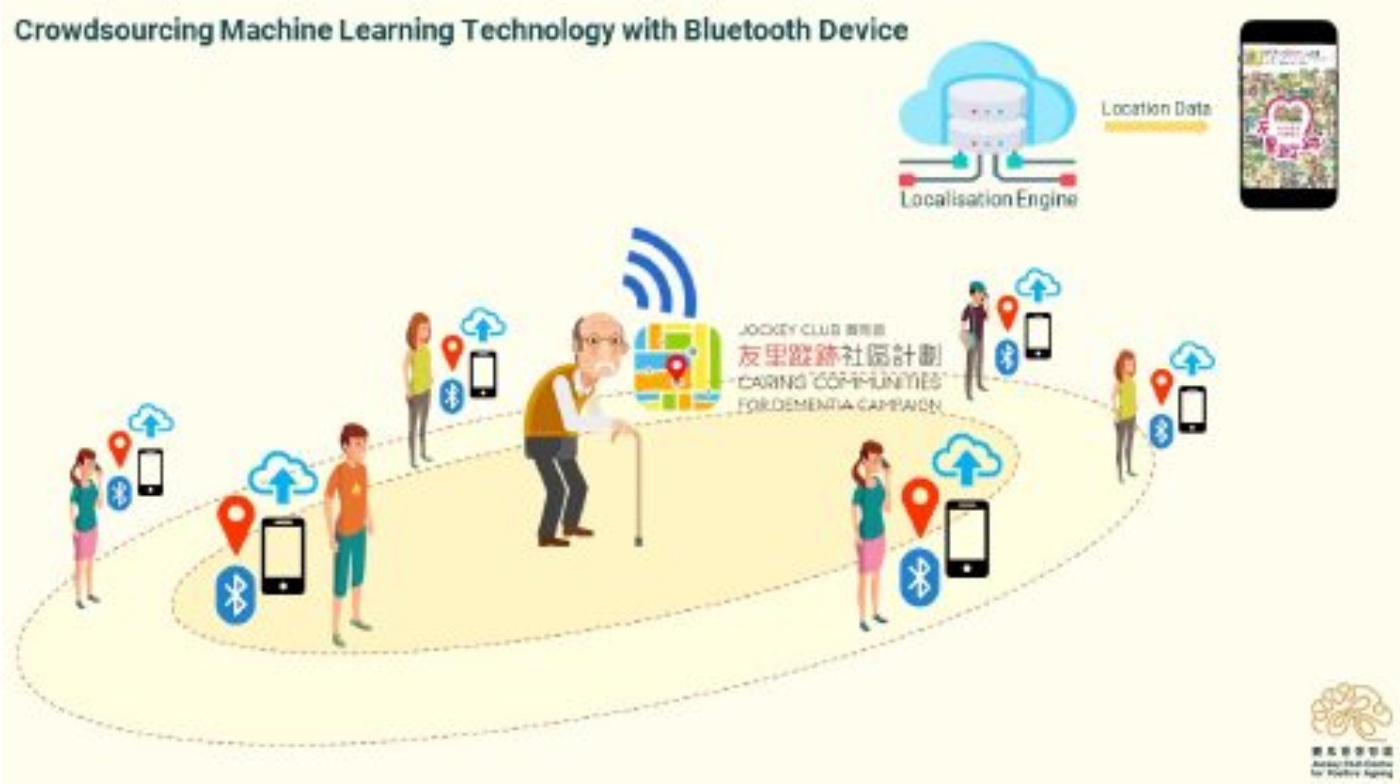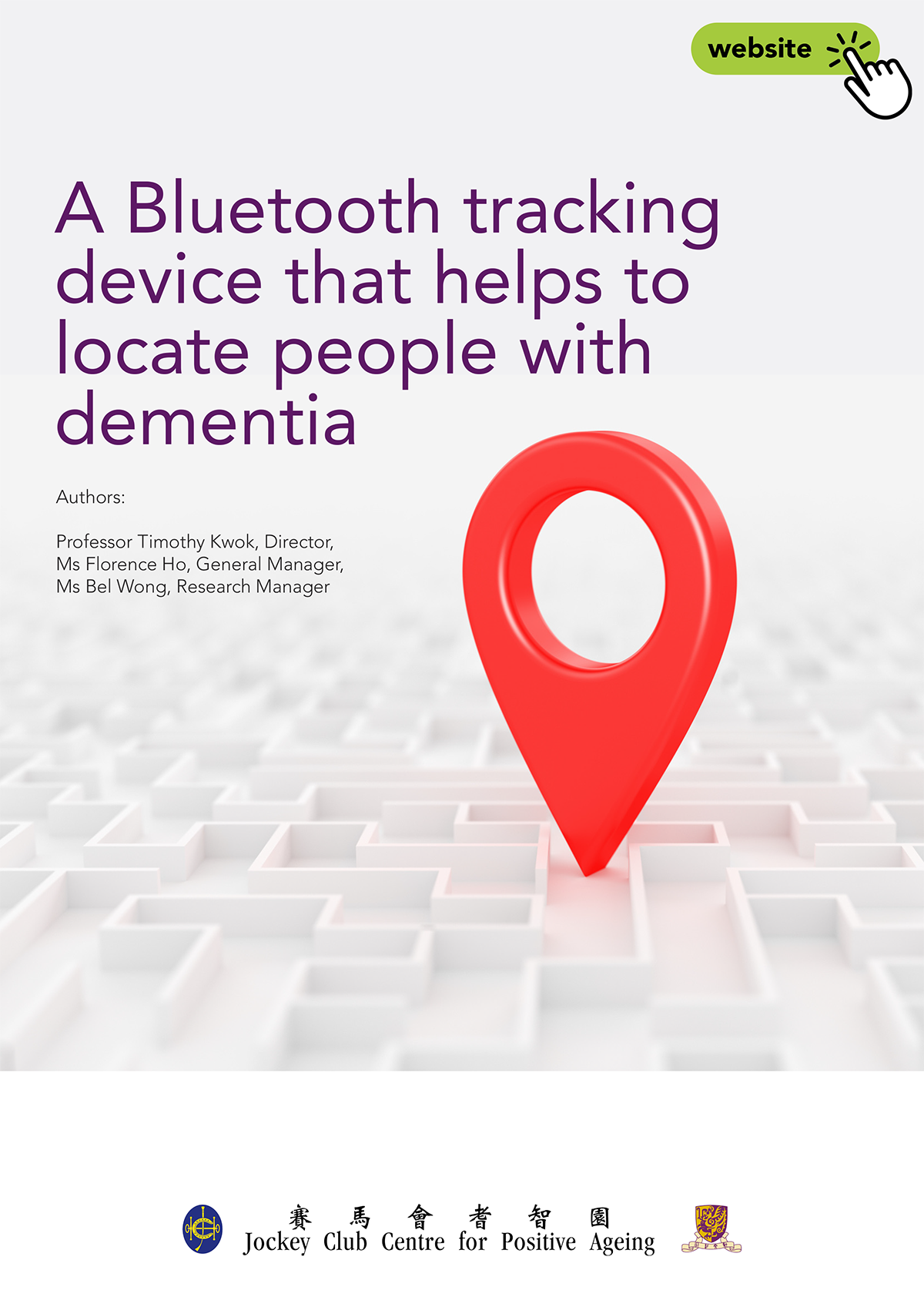Getting lost affects the quality of life of older people who may suffer from dementia. Naturally, it worries their caregivers too, but what can technology do to help?
A phone survey of 251 family caregivers of people with dementia (1) in 2007 found that the prevalence of getting lost among community-dwelling people with dementia was at around 28%. These individuals were most likely to get lost on the street (24%). 61% of respondents would search for care recipients in neighborhood, whereas 12% would seek help from friends and neighbours. It was also found that 46% of care recipients were located within one hour of missing and 96% within 24 hours.

We must reduce the risk of dementia sufferers getting lost
Our survey in 2021 of 576 family caregivers of people with dementia showed similar prevalence in getting lost, revealing that there is still room to improve on reducing the risks of people with dementia getting lost in the community. While only 12% of family caregivers would seek help from friends and neighbours in 2007. In 2021, this had increased to 21% of family caregivers seeking help from neighbours and security guards in the residential areas. Tracking devices and social media were not prevalent back in 2007. By contrast, nowadays, caregivers who would use tracking devices (2.7%) and social media platforms (4.8%) to aid in searching.
This may include Bluetooth tracking devices.
When a person with dementia gets lost, they are most likely to be found in the streets during the day with people around. Neighborhoods may therefore be a good source of help, given that they are more likely to be found within one hour, i.e. not far from the places they get lost. In this regard, educating the general public would help make people aware of this issue.
Those who provide care to individuals with dementia worry about them getting lost
Family caregivers of people with dementia worry about what the future may hold, and whether their loved one may get lost. They obviously want to avoid this at all costs. However, such restriction would cast an adverse influence on the mobility and psychological well-being of care recipients, while, there are various adaptive measures to help prevent walking and getting lost other than restriction of care recipients going out.(2)
Thanks to technology development, nowadays, family caregivers increasingly use the GPS function on mobile phones or tracking devices to search the lost people with dementia, indicating a demand for the development of such technology. Thanks to the donation from The Hong Kong Jockey Club Charities Trust, Jockey Club Centre for Positing Ageing collaborated with The Hong Kong University of Science and Technology and St James Settlement to develop a tracking device using blue tooth and crowdsourcing machine learning technology in the “Caring communities for dementia campaign”.

The development of “iBeacon” to aid the search
The tracking device “iBeacon” we developed has fast response and long- distance tracking up to 50m and is battery-saving with 1-year battery life. It is designed in different forms so that it can be put into a wallet or attached to a walking stick to lower the resistance of people with dementia to carry the device.
When a person with dementia is getting lost, his or her caregivers could activate the missing alert on the app installed on the caregiver’s mobile phone. And then the citizens who have installed the tracking app on their mobile phones will be notified to turn on their Bluetooth for iBeacon searching and GPS for location sharing. When these citizens’ mobile phones detect the iBeacon, their location would be anonymously sent to our cloud server and our localization engine would calculate the location of the iBeacon which would then be sent to the caregivers to help with their search. Such technology not only facilitates family caregivers’ search for lost relatives with dementia but also promotes dementia friendliness community by mobilising the public to help people with dementia who get lost.
Over 3,000 people have obtained our iBeacons in this project and close to 40,000 citizens have downloaded our app to help the search. When a person with dementia got lost, the majority of the caregivers would look for them in the streets (72%), while 36% of the caregivers in the project used iBeacons to search for their missing relatives with dementia.
36% of caregivers managed to find the missing care recipients within one hour, 97% within 24 hours. After the missing episodes, 59% family caregivers who used our iBeacons for searching would give electronic tracking devices to their relatives with dementia, while only 38% family caregivers who did not use our iBeacons for searching would do so, the difference was significant (p = 0.018), indicating that our iBeacons would motivate family caregivers to use technology to aid tracking in future getting lost episodes.

86% of caregivers thought that the iBeacon was easy for people with dementia to carry
The caregivers participating in our project welcomed the technology and the tracking device. 86% of caregivers thought that the iBeacon was easy for people with dementia to carry, 85% observed that their relatives with dementia were willing to carry the iBeacon during the intervention period. 78% of caregivers were satisfied with the durability of the iBeacon, and 86% thought that the designated mobile app was easy to use. The overall programme satisfaction rate was 84%, revealing that they held a positive stance towards using this technology in their daily lives to prevent getting lost.
Over 1,400 participants who have attended our publication talks affirmed our project on the promotion of a dementia-friendly community. Over 98% of the participants had enhanced knowledge and a more positive attitude towards dementia, and 97% of the participants said that they would be more willing to help people with dementia who get lost in the streets. Overall, this programme has promoted dementia friendliness and the usage of technology to aid in searching for people with dementia who get lost in the community.
References
- Kwok TC, Yuen KS, Ho FK, Chan W. Getting lost in the community: a
phone survey on the community-dwelling demented people in Hong
Kong. International journal of geriatric psychiatry. 2010;25(4):427-432. - JCCPA. Getting Lost Prevention. 2018.
Read and download this full eBook here ‘A Bluetooth tracking device that helps to locate people with dementia’


